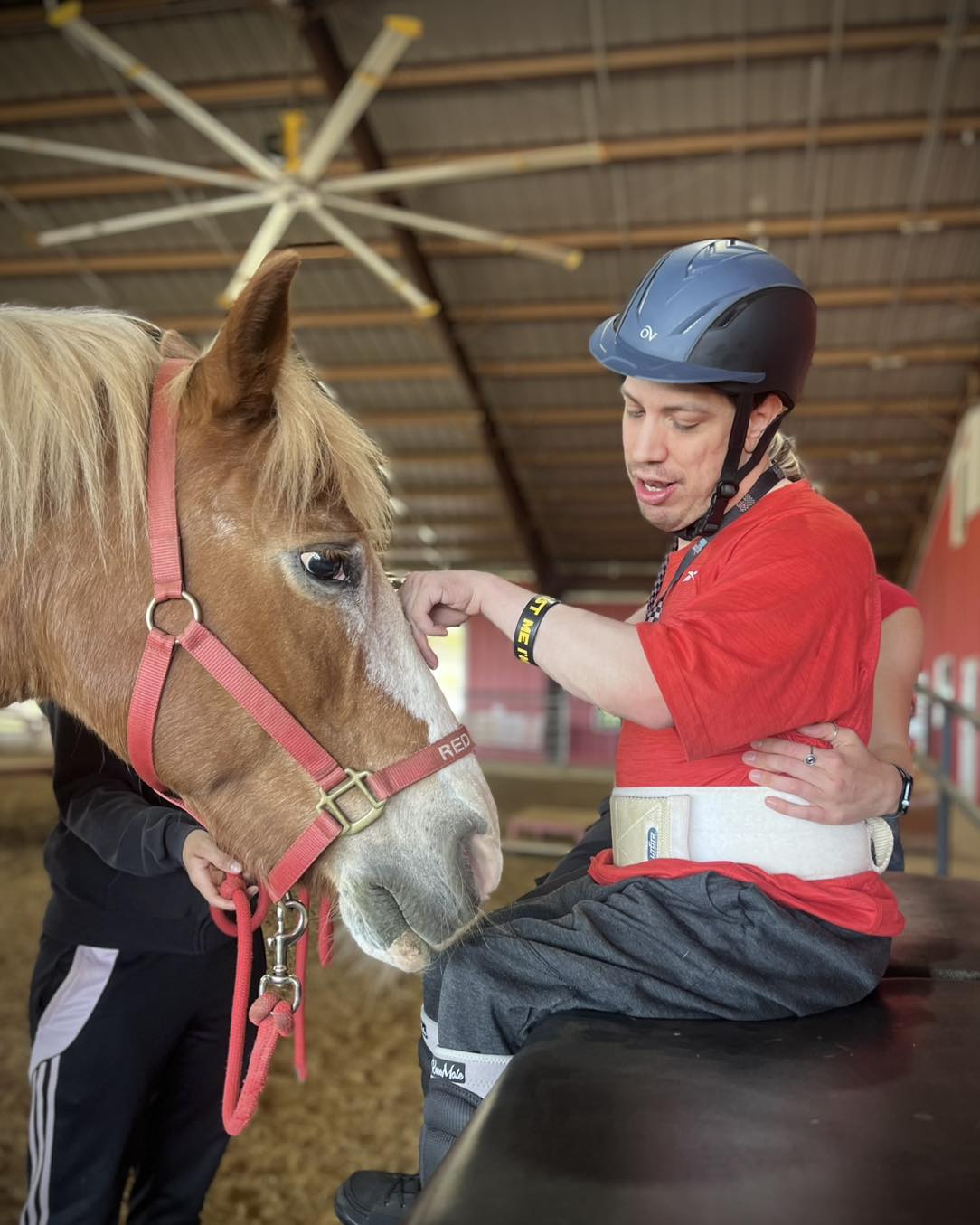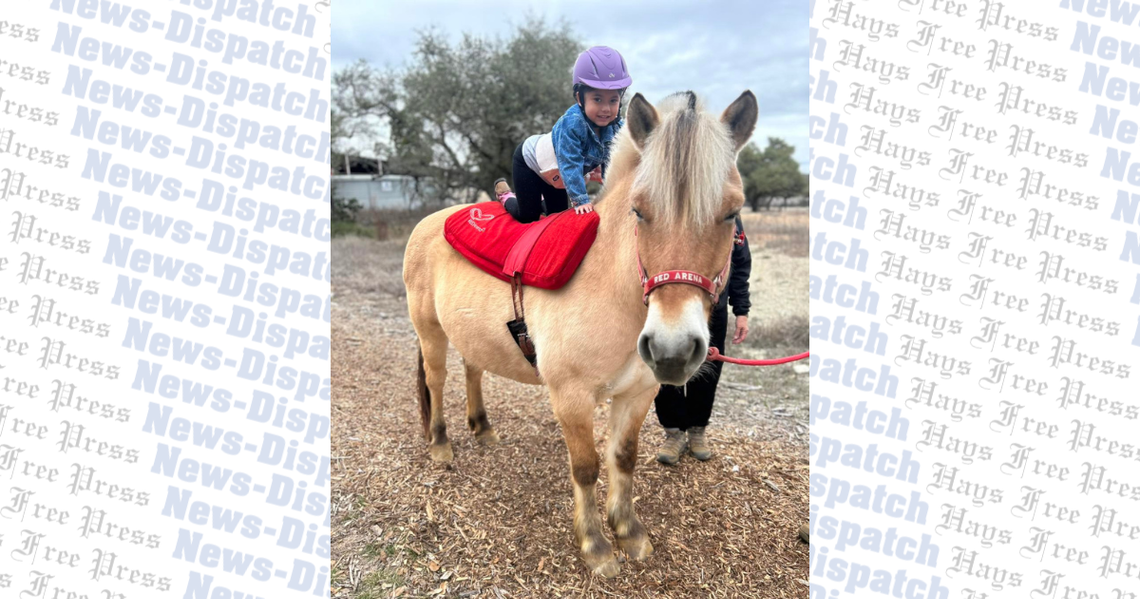DRIPPING SPRINGS — After seeing the positive effects on her clients, physical therapist Jennifer Young knew she needed to start her own riding center — Red Arena.
The premier accredited therapeutic riding center began in 2008, explained Young.

“I would see my patients for their home visits and sometimes, I would see them the day after they rode their horse at a program up in Georgetown,” she said. “Their body was so relaxed and I was amazed that a day later, they would still have a neurological impact of reduced tone and they really loved being on their horse. They talked about how much fun it was and their family loved seeing them ride.”
Although she learned of the benefits in school, she shared that she was never into horses as a kid, so it didn’t interest her, but after seeing the positive impact, she began volunteering at the same center where her clients rode.
Young explained that she was amazed to see how the horses are able to benefit every person that rode them. Whether this be someone with high tone — the natural resistance of a muscle's ability to stretch — such as a client with cerebral palsy or someone with low tone, like an individual with Down syndrome.
It was at this facility that she was encouraged to start her own practice.
So, in 2005, she leased a horse in Northwest Austin, said Young, and began with her previous five clients.
“What really hooked me on it was, these were kids I knew and had been working with for a long time and then, to see them on the horse and not only was it all the physical therapy things I wanted to work on — the strength, balance, coordination, range of motion — but they were excited. They were happy. They were using a ton more communication than when we were just at their home doing therapy. So, I could really see the whole child being impacted and how powerful that was to get so many things happening at once,” the physical therapist said.
She and her husband moved to Dripping Springs in 2008 and, through connections, began the nonprofit it is today — Red Arena. From starting with one horse and five clients, Red Arena now has more than 20 horses and more than 200 sessions a week.
Young emphasized that what makes the physical therapy riding lessons stand out above traditional therapy is the universal benefit, as well as the multiple systems at work. For example, she noted that the core is being activated through sitting up tall, the eyes must be on the horizon, so they’re tracking, which is important for balance, the vestibular system — fluid in the ears — is also engaged, as well as the proprioceptive system, which is the internal body awareness. All of these, along with the physical movement of the horse that mimics walking motions through the pelvis and muscle engagement, are working at the same time.
“There’s almost no diagnosis that doesn’t benefit from being on the horse,” she said, as even those that may not have a physical disability, but have neurological differences can benefit, since it calms their senses.
Other individuals that could benefit are those with a stroke, head injury, Parkinson’s disease, dementia and Alzheimer’s, since the facility begins taking clients in their programs from the age of two and continues on into adulthood, said Young.
Additionally, there is an adult vocational program, which provides an opportunity for adults with disabilities that are more independent.
“We get them doing some crafting, being engaged, a lot of social interaction and we hire some of them to work in the gift shop and then, through there, they also will get some physical activity,” Young said. “So, they might go and take the mini horses for a walk or something … They should come in for about four hours and just kind of rotate through doing a bunch of different things. It’s nice because the gift shop’s open to the community, so anyone can stop in. Then, the things that you buy in the gift shop then go and help support that program to buy the supplies and stuff.”
There is also a reading program, where, specifically the siblings of those attending the riding therapies, can read to mini horses and groom them. This was created, continued Young, to involve those who “get dragged around to all the therapy appointments all week for their older sibling or their other sibling. So, we thought, 'Okay, what’s something special they can do while they’re here?'”
Summer programs are all inclusive and open up in March, Young said, but the therapy program will begin its sign-ups in July for the school year.
“We do a free screening. So, when people have questions [on whether] this program is appropriate for them or their family member, loved ones, they have to fill out the forms online, but then, we schedule a free screening and they can come see the program,” she explained.
Although Red Arena does not directly bill insurance companies, it does have several contracts with state programs to cover the costs, as well as partial scholarships, which can be found on the nonprofit's website.
In the future, Young hopes to further establish its San Marcos location and begin mental health programs, while also aiding other therapy riding centers in becoming safer.
Those interested in supporting Red Arena can visit www.redarena.org to donate to specific horses or support a summer camp for one participant. Furthermore, purchasing items at the gift shop goes directly back to the organization.











